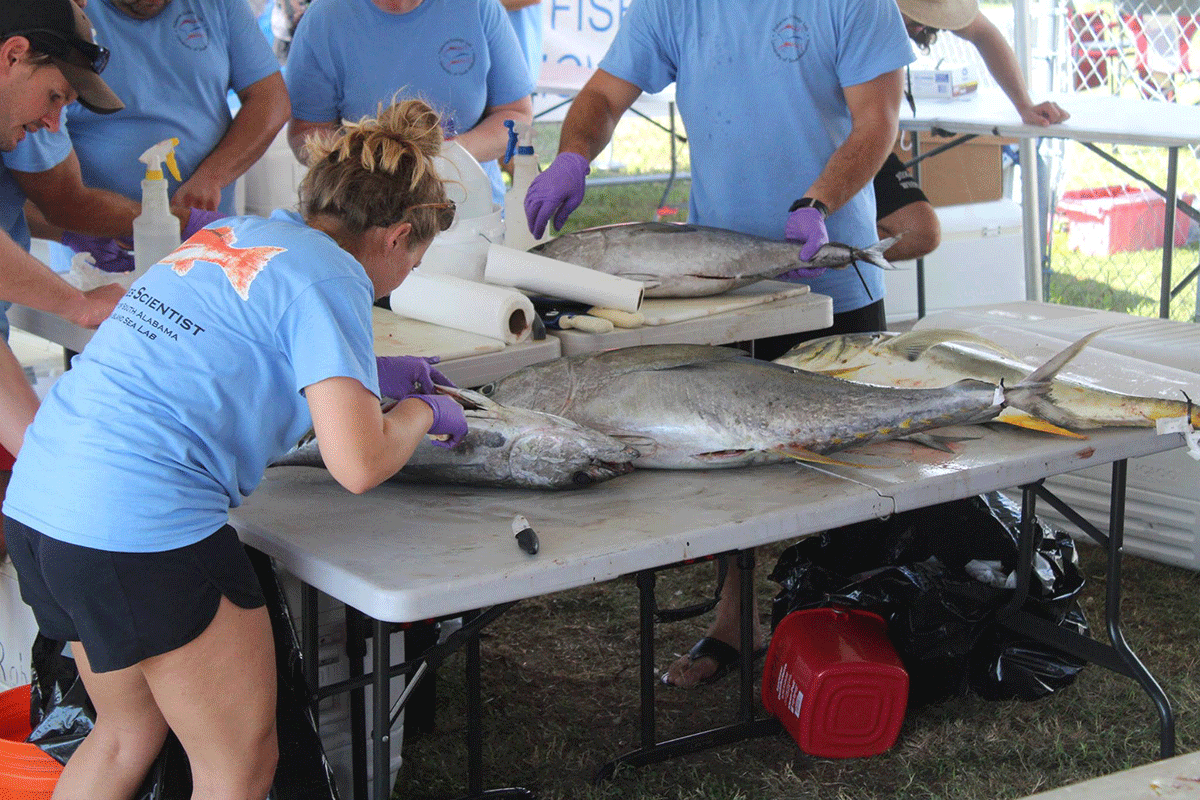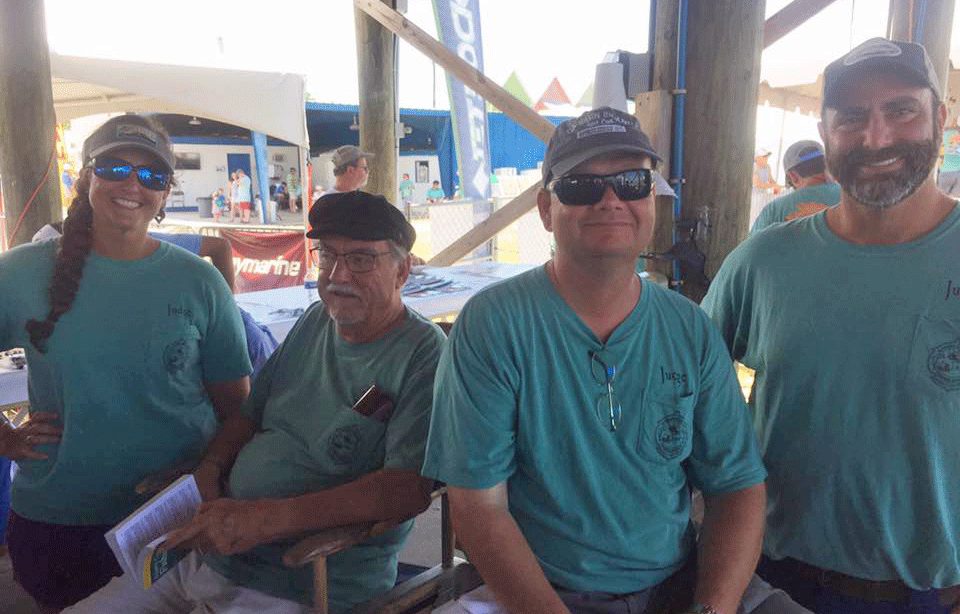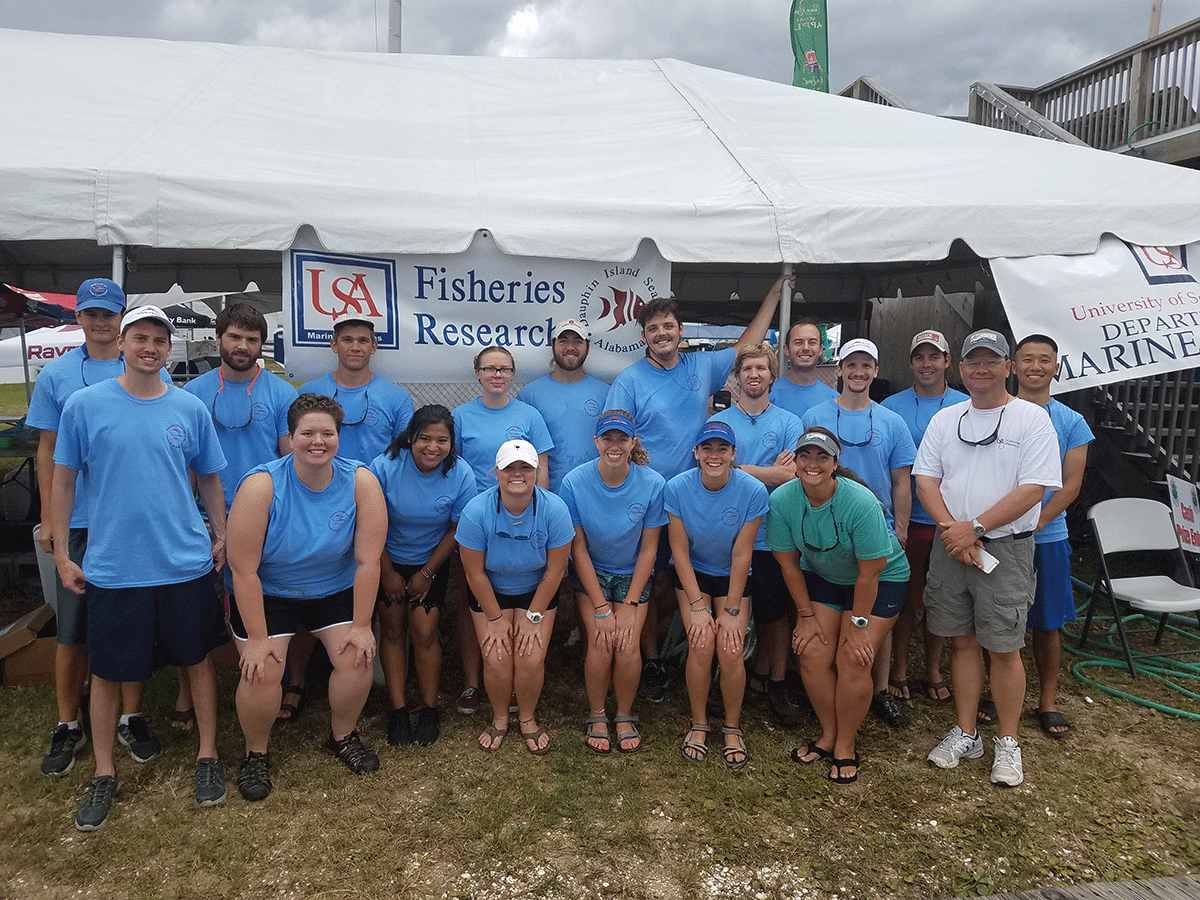
The Alabama Deep Sea Fishing Rodeo delivers a prime opportunity each year for scientists at the Dauphin Island Sea Lab to collect fish samples and tag live fish for continuing research.
A member of the Dauphin Island Sea Lab and University of South Alabama Fisheries Ecology lab also made history at the 84th annual rodeo.
Lab manager Crystal Hightower served as the first female judge for the rodeo.

"It was an amazing experience to help judge alongside Drs. Shipp, Powers, and Drymon," Hightower said. "I love that the ADSFR presents an opportunity for us to discover new things and continue to learn more about our Gulf fishes every year."
This year, the team collected 951 samples, and deployed more than 50 acoustic tags. The acoustic tags will allow DISL researchers the chance to gather data from 21 red drum and 25 speckled trout.
"My favorite part of the tournament is the live weigh in, and interacting with the anglers who have worked so hard to keep their red drum or speckled trout alive so we may tag it," Hightower said. "My favorite part about it is, after the rodeo, their story continues and we continue to learn more about these fish and their movements around coastal Alabama for the rest of the year."
This is the third-year live tagging has happened at the dock, and one of the speckled trout tagged this year is no stranger to the rodeo. In 2015, the DISL team tagged and released a female speckled trout that was caught at Port Royal on Dauphin Island. That same speckled trout was caught on Friday near Sand Island measuring 7 inches longer, and 3.43 pounds heavier.

"We also had a red drum weighed in at the live weigh in with no spot on either side of its caudal fin," Hightower said.
The most unusual catch of the weekend was a garden eel. Dr. Bob Shipp identified it as a most likely a heteroconger species, but it was not described in any of our Gulf of Mexico fishes books. Hightower said they will run genetics to see if they can identify it to species.
We'll keep you updated on what the DNA testing reveals.